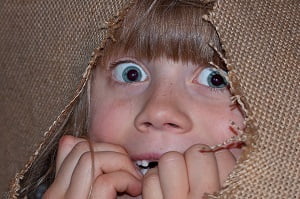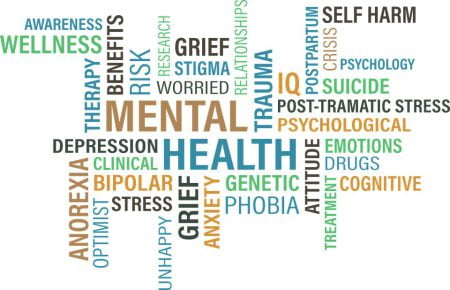What You Should Know About Aerophobia?
- Updated on: Nov 16, 2023
- 5 min Read
- Published on Apr 11, 2020

What is Aerophobia?
Aerophobia refers to the extreme fear of flying either in aero planes, helicopters or even flying sports.
People with fear experience anxiety, trembling, nausea and panic attacks. Aerophobia suffering people usually sense sounds and movements during takeoff and landing which are unpleasant to them.
Almost one forth of people who take flights suffers from aerophobia. When your fear develops into phobia, it can cause severe impact to your life and you will avoid visiting long distance places where only airways can be used.
Aerophobia is a type of psychological disorder and may be caused due to some other fears like fear of heights (acrophobia), fear of closed places (claustrophobia), fear of germs (mysophobia) etc.
What are the Symptoms Associated With Aerophobia?
The symptoms that usually occur in persons suffering from aerophobia are:
- Increased heartbeat
- Nausea which sometimes leads to vomiting
- Fever, headache and dizziness
- Stomach disturbance like diarrhea
- Feeling irritated
- Trembling and shaking of body
- Feeling of anxiety and sometimes panic attack may occur
- Crying and profuse sweating
- Cold hands and flushed skin
- Shortness of breath and a feeling of choking
- Feeling disoriented and nervous
- Chest pain
- Feeling of unconsciousness
What are the Causes of Aerophobia?
There may be several causes that usually contribute to the fear of flights.
Traumatic Experience
People may develop fear of flying from their childhood. If a child has an experience of getting severe injuries by falling from a height or have seen someone falling from a high story building, he may be at an increased risk of developing this type of fear or phobia later on. This creates a bad memory in the child brain which contributes in developing the fear.
Some people may get aerophobia, if they have ever experienced severe turbulence during their flight ravel.
Portrayal Media
If you have been exposed to several images of airplane crashes on TV or have watched some incidents of tall building accidents, you are most likely to develop aerophobia.
Feeling Unsafe
People may have a fear of flight high jacking or terrorism, this may also contribute to their fear of flight.
Some people develop anxiety even during airport security measures like body checking and X-ray scanning. At the time of check-in, these emotions get more intense.
Feeling choked in Confined Spaces
People may develop aerophobia if they feel severe anxiety while being in confined and closed spaces. These people more likely lose control over their bodies and may feel like if they are dying. As planes do not have large spaces and are even crowded especially during boarding, therefore people with aerophobia may feel anxiety such times.
Other Factors
People may develop fear due to a feeling that the plane is not always sanitized because lots of people travel through it. Such types of people already suffering from mysophobia avoid flight travelling.
Fear of vomiting may also be a reason to cause aerophobia. People may get aerophobia from their parents too, as it is hereditary.
How can I Overcome Aerophobia?
If you feel anxiety and fear during a flight, there are some ways by which you can reduce your fear on your own:
- The first thing to conquer your fear is to accept that you have the fear. Don’t get hesitated and embarrassed to speak up about your fear. Always keep this in mind, that you are not the only one who is suffering from aerophobia. There are many other people too who might be having the same problem. This process of discussing fear with your near ones may help you find a person who has succeeded in overcoming this type of fear and that person can also encourage you to reduce your fear.
- When you board the flight and take your seat, keep your position set with crossed ankles and put one arm over the other in front of your chest. Take deep breathe slowly and allow rest to tongue against the top roof of your mouth. This will make you feel relaxed.
- Try to eliminate the distractions like moving objects that make you feel stressed.
- Try to do some things that make you feel happy and reduce anxiety like listening music and eating some snacks that you like the most. Avoid consuming sweets, chocolates, cold drinks, coffee and tea because they contain caffeine and sugar that usually contributes to the feeling of nausea.
- Try to get more knowledge about flights and find out how safe the flight travel is. Knowledge can help you conquer your fears because your logical facts that you have got through reliable sources can empower your fear. If you have a fear of flight due to turbulence, try to learn some science facts about safety during turbulence. This will make you feel relaxed, safe and calm.
- If your fear flying is disturbing your enjoyment and keeping your life limited to a single place, then it’s high time to set some travel goals. Make a plan with a person with whom you feel more comfortable and fix a date for your visit. You can make a list of those places where you want to fly.
- If you have a fear of confined and crowded places, then you can talk to the airlines to board your flight early.
- You can remove your fear of flight by thinking in a positive manner about how pilot is controlling the situation, taking so many people flying high safely and help in reaching them to their destination.
Can Aerophobia be Treated?
If you feel that your fear is becoming too much and is affecting your life style for example, making it difficult to reach your conference meetings outside which affects career and avoiding family trips to abroad etc, it’s a high time to go to a doctor for treatment.
If the fear affects your life and become persistent, there is a chance you may develop depression and other health issues.
There is no specific treatment for aerophobia but doctors usually prefer the following treatment options:
Virtual Reality Exposure Therapy
This therapy helps in confronting over your fear of aerophobia. It is a type of exposure therapy which usually involves patient’s exposure to the fear stimuli and objects in a safe environment. Patients are exposed to this therapy through digitally created flight environments.
Hypotic Therapy
Hypnotists usually perform this therapy because they have a command in reading people’s mind. Hypotist will guide you and give you suggestions on how to relax and be calm whenever you feel fear of a flight.
Medications
Doctors may also prescribe some medicines to cure the fear. Medicines usually work very fast if prescribed along with talk therapies or cognitive therapies.
Specific medications which are given to release stress, anxiety and panic attack includes such as:
- Beta blocker agents such as propranolol maintain blood pressure and heart rate and eventually help in relieving from anxiety issues.
- Sedatives such as tranquilizers and benzodiazepines can also be prescribed to reduce anxiety. These medicines are generally suggested for short time periods because a person may develop their addiction.
- D-cycloserine medicines may give good results when used along with exposure therapy because it has been found in some studies that it can improve the effects of exposure therapy.
FAQs
What Causes Aerophobia?
The fear of flight may be the consequence of variety of factors like if someone has a history of falling from height, watched some media or movies showing plane crash scenes due to some turbulence or if he has fear of terror (high jacking). Fear of height, crowded places and germs contribute to the development of aerophobia.
How Do I Calm My Anxiety on a Plane?
If you feel anxious while being in plane, you can follow some steps to conquer your flight stress:
- Just relax your body and perform some breath relaxing exercises like taking deep breathe slowly while sitting on the seat and then release it.
- Avoid eating cold drinks, chocolates, coffee or tea while going for flight because these things can increase nausea feeling.
- Try to distract yourself and listen some soothing music.
- Be positive and confident.
What Drug Is Best For Fear Of Flying?
Sedatives are effective to reduce fear of flight. Sedatives like benzodiazepines such as xanax and ativan usually work very fast against anxiety and panic shock and can leave the effect in a body for several hours. These medications are usually given for a short period of time because the person can become addictive of these medicines.
Can I fly With Aerophobia/Aviophobia?
Yes, you can fly with aerophobia. Before taking a flight, you should first prepare yourself and follow some tips:
- Avoid alcohol, sweets, coffee, and cold drinks before taking a flight or during flight to avoid nausea and vomiting.
- Take a deep breath while you take your seat.
- Try listening some music to avoid fear.
- If you have a blood pressure problem, be sure to take your medicine as prescribed by the doctor.












